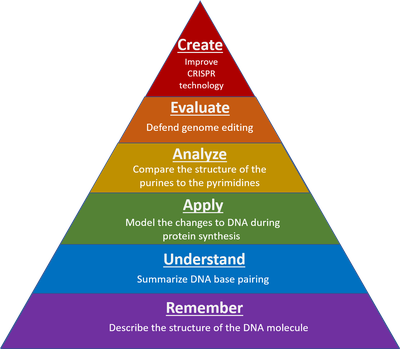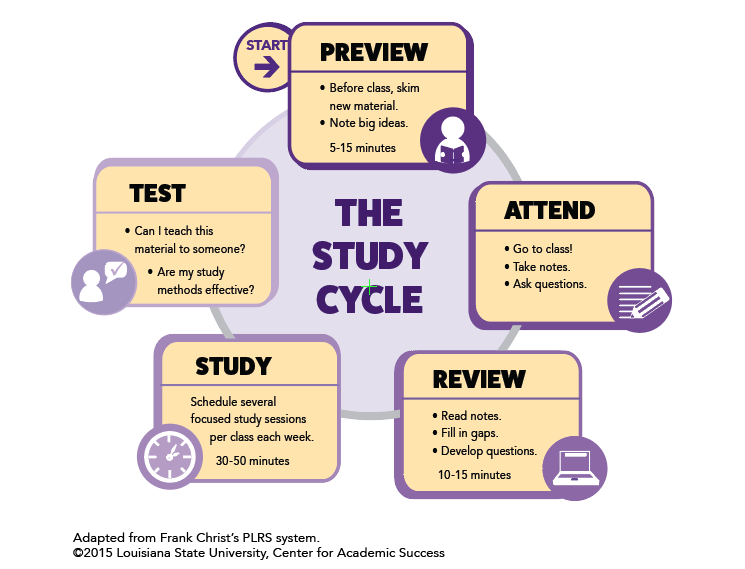Teaching Learners to Learn?

Did anyone teach us how to learn when we were students? I suspect not, but does making UofL a great place to learn require us to teach this to our students?
I would suspect that many of us (the faculty) have assumed that by the time our undergraduate and professional students and residents get the Health Sciences Center (HSC) campus, they already know how to learn. It would seem reasonable since, after all, dental and medical students have graduated from college and completed difficult standardized exams to gain entry. However, we know that many learners struggle. Think about the massive volume of information they are expected to take in and recall for their licensing and board exams. Furthermore, most of the students in the School of Nursing and many in the School of Public Health and Information Sciences are undergraduate students and have had less experience with handling fast-paced, high-volume learning. What worked in high school and college may not be as effective in our educational setting on the HSC.
We were never taught how to learn. Do we even know how to help?
Next month, the Celebration of Teaching and Learning Conference (February 7, 2020, Shelby Campus) hosted by the Delphi Center will feature nationally-acclaimed author, Dr. Saundra McGuire, as their keynote speaker. She is the Director Emerita of the Center for Academic Success and retired Professor of Chemistry at Louisiana State University. Her book, Teach Students How to Learn, puts forward strategies that you can incorporate into any course to improve student learning. Dr. McGuire has gained national recognition for this approach and in her book she recounts many anecdotes and provides research data supporting the effectiveness of this approach to help students learn how to learn. Although the book targets classroom-based teaching in higher education, the principles, and approaches she uses could be readily modified to teaching students and residents how to learn in a clinical setting as well. We are reviewing this book in part to prepare you for attending Dr. McGuire’s presentations next month, but also to stimulate you to read her book for yourself. Let’s look at the key ideas she puts forward.
Metacognition and Motivation
Dr. McGuire's approach starts with telling students about metacognition (thinking about your own thinking). Metacognition is the ability to:
- think about one's own thinking;
- be consciously aware of oneself as a problem-solver;
- monitor, plan and control one's mental processing; and
- accurately judge one's level of learning
In addition to getting students to understand metacognition, she emphasizes the importance of establishing a growth mindset about learning and instilling motivation in our learners. Many students have a fixed mindset about learning ("I'm not smart enough to learn chemistry"). Dr. McGuire stresses the importance of action, not ability, to learn. She motivates her learners to embrace the challenge of learning, to persist in their efforts, and she lets her learners know that she believes in them.
Tools Used to Teach Students How to Learn:
Bloom’s Taxonomy. Dr. McGuire then uses a four-step process for introducing students to Bloom's Taxonomy, a tool typically used by teachers to prepare learning objectives and assessments, but she uses Bloom's in a different way when she is teaching students how to learn. Here is her process:

- Ask: what's the difference between studying and learning?
- Ask: would you study harder to make an A on a test or to teach the material to the class?
- Present: Bloom's Taxonomy
- Ask: At what level of Bloom's have you been operating? At what level do you need to be operating now?
Dr. McGuire uses this approach to get the learner to discover for themselves how “studying” may not result in learning, how teaching requires a different approach than preparing to do well on a test and to see that they now need to reach for a higher-order level of comprehension than simple fact-based recall.
The Study Cycle. It can be hard to talk with students about learning strategies, but Dr. McGuire introduces learners to The Study Cycle and tells them to use it. This graphic illustrates her recommended approach to effective studying.

Figure 2. Retrieved from https://www.lsu.edu/cas/earnbettergrades/note-based.php
Want To Learn More?
I encourage you to come to the HSC Pre-Celebration lunch session at noon on February 6th (Dental School - Room 124) to hear Dr. McGuire for yourself. Better yet, register for the Celebration of Teaching and Learning full-day conference on Friday, February 7. If you would like to dive more deeply into this book, we are offering a reading circle for faculty in three, one-hour sessions between February and April. You can purchase the book at this amazon link. Email HSCFacDv@louisville.eduo join our reading circle.
If we are to truly make UofL a great place to learn, we all need to do our part to help our students and residents to learn how to learn. I look forward to seeing you on February 6 and 7.
References
McGuire, S. Y., & McGuire, S. (2015). Teach students how to learn: Strategies you can incorporate into any course to improve student metacognition, study skills, and motivation. Sterling, Virginia: Stylus Publishing, LLC.